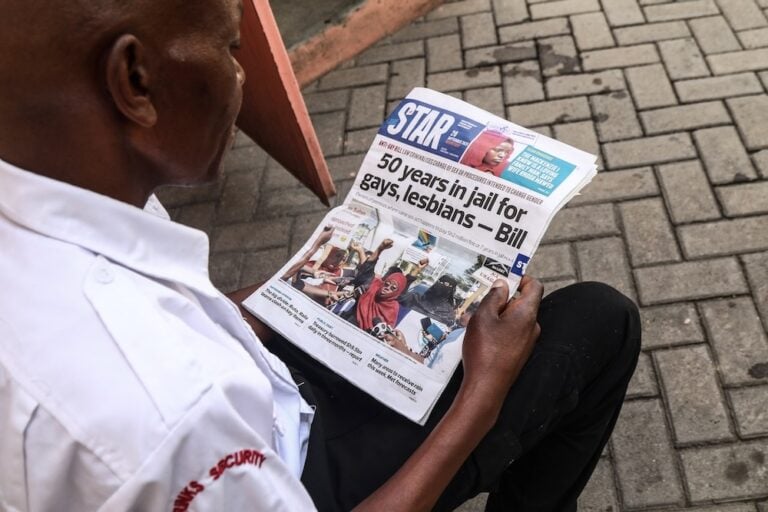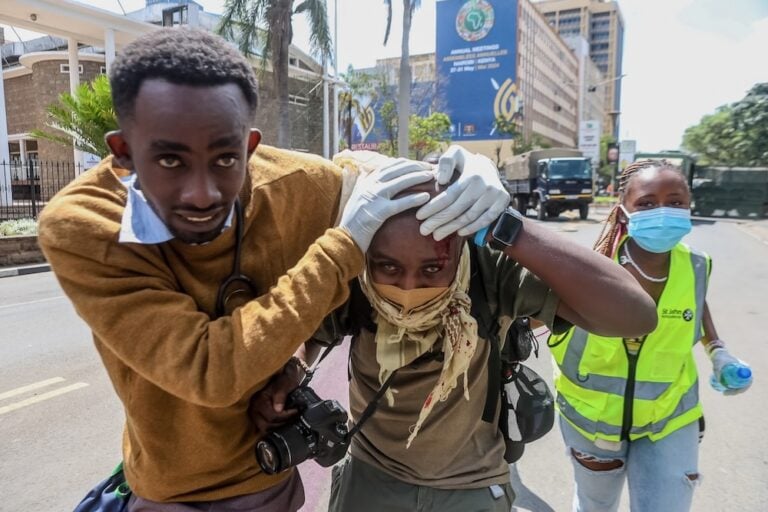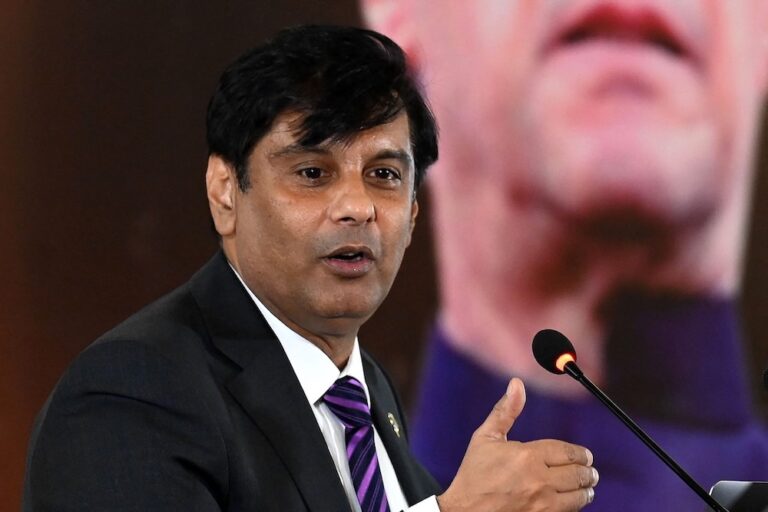(NDIMA/IFEX) – The High Court in Meru in Kenya’s Eastern Province has ordered local daily “East African Standard” to pay Charles Kariuki and Company Advocates Kes 20 million (approx. US$254,000) in damages. Kariuki had sued the Standard Limited for general and special damages for defamatory statements contained in an article that appeared in “The Big […]
(NDIMA/IFEX) – The High Court in Meru in Kenya’s Eastern Province has ordered local daily “East African Standard” to pay Charles Kariuki and Company Advocates Kes 20 million (approx. US$254,000) in damages.
Kariuki had sued the Standard Limited for general and special damages for defamatory statements contained in an article that appeared in “The Big Issue” 6 December 1999 insert, titled “Crooked Lawyers.”
The article described Kariuki as one of the crooked lawyers who misappropriated clients’ money awarded by insurance companies as compensation in traffic accident cases.
The Association Kenyan Insurers and several other witnesses admitted supplying information to the “Big Issue”, but after going through court exhibits they all concurred that Kariuki was never directly mentioned in any of the reports released.
Kariuki argued, before Meru High Court Justice William Tuiyot, that he has never been a crooked lawyer, nor misappropriated insurance or clients’ money.
He said the article clearly portrayed him as being unprofessional, fraudulent, a criminal fit to be in jail and dishonest, thus injuring his character, integrity and reputation in the way of his practice. Kariuki further argued that due to the said bad publicity concerning him and his firm, companies and individuals who used to be the backbone of his workload have diverted their business to other firms of advocates.
In his judgment, Tuiyot said Kariuki proved that the words “crooked lawyer who misappropriates clients’ funds” are a defamation of the highest degree, seriously injuring his integrity, reputation and affecting his practice.
Due to the wide readership of the newspaper, the judge said the publication affected his legal practice forcing him to close down one of his branches, reduce the number of his assistants and members of paralegal staff, while corporate clients, insurance companies and individuals pulled out of his firm.
Tuiyot said Kariuki’s legal colleagues and the public suspect him of being a dishonest person and it is very hard to erase the damaging statements from their minds. The judge added that the publication has impacted on the lawyer’s health.
Since the lawyer depends on the legal practice for his livelihood, Tuiyot said the article has completely narrowed his chances for legal practice in this country and abroad.
Due to the lawyer’s status and standing in society, and the loss of business resulting from the damaging article, Tuiyot ordered the “East African Standard” to pay Kes 20 million in damages plus the costs of the suit. The newspaper said that it would appeal the decision.
The award against the “East African Standard” is the latest in recent cases where courts are hitting the media with heavy damages.
On 7 September, the Nation Media Group was ordered by the Nairobi High Court to pay a Nairobi lawyer Kes 10.2 million (approx. US$129,000) for libel. Justice Kasanga Mulwa ruled that the newspaper should pay John Patrick Machira the money for defamation contained in a picture caption published in 1995 (see IFEX alert of 10 September 2001).
On 22 December 2000, Commissioner of Assize Alnashir Visram ordered pathologist Ian West and journalist Chester Stern, who co-authored a book, to pay Cabinet Minister Nicholas Biwott a total of Kes 30 million (approx US$380,000) in damages.
On Tuesday 27 November, publishers of the “Kenya Times” and a former editor-in-chief were ordered to pay a law firm Kes 10 million (approx. US$127,000) for libel. Justice Alnashir Visram awarded lawyers Waruhiu and Muite Kes 8 million (approx. US$101,200) in general damages and Kes 2 million (approx. US$25,800) in aggravated damages plus costs.


